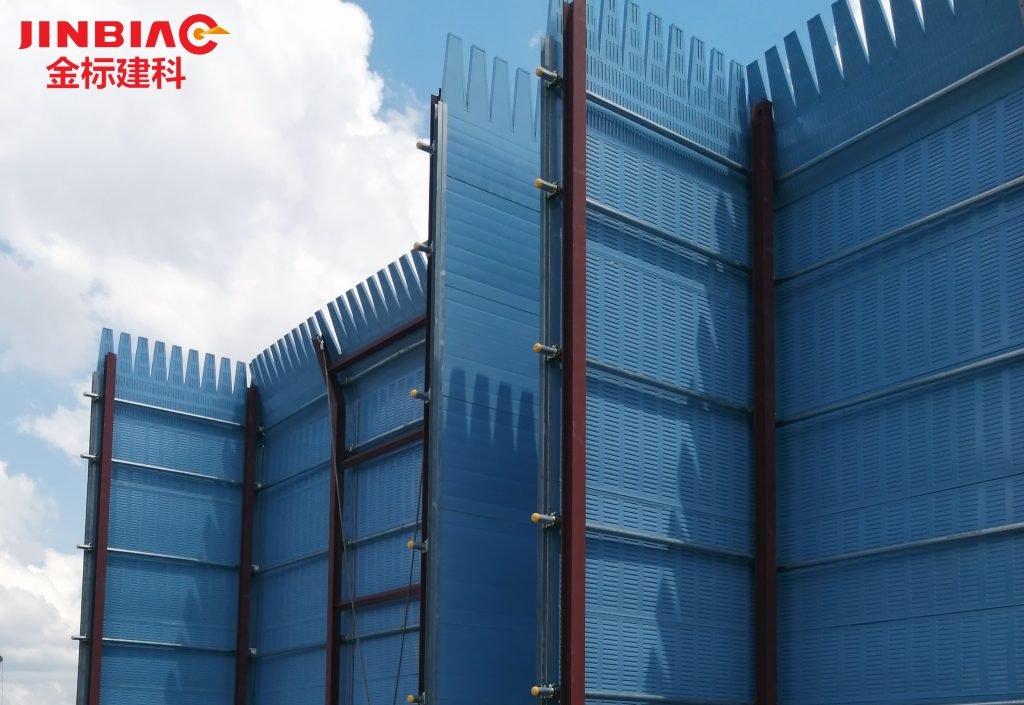
Have you ever been outside and heard the noise of traffic or an airplane flying overhead? If so, then you know how annoying and loud noise pollution can be, especially at night. Many people don’t realize it, but there are ways to reduce noise pollution, one of which is using sound barriers.
What are sound barriers and how do they work?
Sound barriers, which are also known as noise barriers, are structures specifically designed to reduce noise pollution. By deflecting sound waves away from a particular area, they can help to improve the quality of life for people who live or work in noisy environments.
There are many ways that sound barriers help in mitigating noise pollution. These include:
1. Lessening the impact of highway and airport noise affecting nearby neighbourhoods.
Noise barriers reduce the spread of bad noises into your environment.
If you live near an airport, for example, these can help drown out all those distracting engine sounds that come with being so close-by – especially if it’s just not possible or practical (economical) to relocate elsewhere due factors such as cost and time constraints.
Airports and other public utility structures are now employing the use of sound barriers in Singapore, since traffic sounds generated by vehicles and airplanes have a negative impact on those who hear them. By absorbing sound waves and their attributes, traffic noise becomes more tolerable to the ears.
2. They trap the soundwaves and prevent them from spreading around.
Do you know that there is a type of barrier that not only blocks visual nuisances, but also noise? Sound barriers in Singapore are specifically designed to block and deflect sound waves, making them an ideal solution for mitigating noise pollution.
Sound barriers are often used in construction sites and demolition areas because these are places where noise usually comes from. It can be very distracting to listen to construction and demolition sounds that are not only very loud; they also have attributes that have a lasting impact on our wellbeing. Hearing loss is the most serious consequence.
3. These barriers are suitable for every use.
Sound barriers may be designed with industrial-grade materials, but this doesn’t mean they are only installed to address industry-level noise issues. In fact, noise barriers are suitable for just about every use.
There are noise control barriers that are more useful at home, since today’s neighbourhoods are often built close to common mass transportation options. They can also be used in big events, or in properties that house equipment that generate noise.
4. They can be included in the overall building design.
Sound barriers are an effective way to limit the volume of offensive sounds such as sirens, lawn mower engines or chewing gum. The architect can use these surfaces in construction projects for managing environmental factors like noise pollution that may affect workers’ health and productivity on site while also reducing costs related with sick leave due listening fatigue.
Some noise control products are built to last a lifetime so they can be tailor-fitted to a building’s specific needs. These days, sound barriers can be custom-designed to match a structure’s size and dimensions, depending on their need and capacity to mitigate the flow of noise.
Hebei Jinbiao is a leading company in Noise Barrier products and Fencing products in Singapore. We guarantee to provide you with the most high-quality Noise Barrier and Fencing products along with our dedicated assistance. Do not hesitate to contact us. We are looking forward to helping you solve your noise issues, safety issues and protecting you from noise pollution as well as ensuring your safety.
